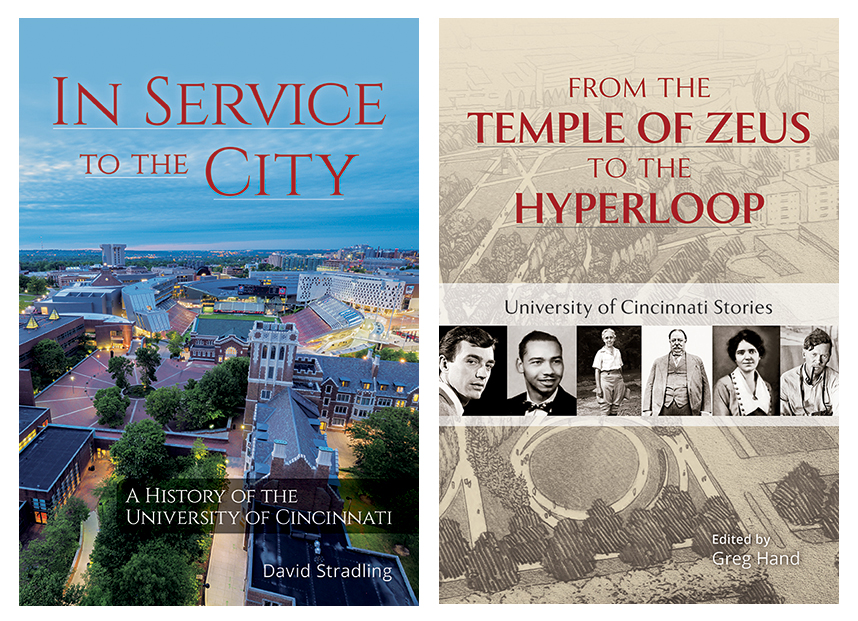 On Wed, December 5, from 6:00 – 8:00 pm, the Mercantile Library will host Celebrating the University of Cincinnati Bicentennial, featuring David Stradling and Greg Hand who will speak about their books published recently by the University of Cincinnati Press. In Service to the City: A History of the University of Cincinnati, is a comprehensive history by Professor David Stradling. Its companion volume, edited by Greg Hand, From the Temple of Zeus to the Hyperloop: University of Cincinnati Stories, is an anthology that complements and enriches Stradling’s book by demonstrating the UC experience.
On Wed, December 5, from 6:00 – 8:00 pm, the Mercantile Library will host Celebrating the University of Cincinnati Bicentennial, featuring David Stradling and Greg Hand who will speak about their books published recently by the University of Cincinnati Press. In Service to the City: A History of the University of Cincinnati, is a comprehensive history by Professor David Stradling. Its companion volume, edited by Greg Hand, From the Temple of Zeus to the Hyperloop: University of Cincinnati Stories, is an anthology that complements and enriches Stradling’s book by demonstrating the UC experience.
The event is free and open to the public. Registration is required at https://mercantilelibrary.com/calendar/celebrating-the-university-of-cincinnati-bicentennial/
More about the books:
In Service to the City: A History of the University of Cincinnati is a scholarly history by David Stradling, who holds the Zane Miller Chair in Urban History at UC. Stradling is a noted author of urban history, author of Making Mountains: New York City and the Catskills (University of Washington Press, 2007), The Nature of New York: An Environmental History of the Empire State (Cornell University Press, 2010) and Where the River Burned: Carl Stokes and the Struggle to Save Cleveland (Cornell University Press, 2015). Stradling’s book focuses on the evolving relationship between the University of Cincinnati and the City of Cincinnati and how these two entities influenced one another.
A companion volume, edited by Greg Hand, From the Temple of Zeus to the Hyperloop: University of Cincinnati Stories, is an anthology of 35 chapters that complements and enriches Professor Stradling’s book by demonstrating the breadth and diversity of the UC experience. Authors for this volume include Sarah Jessica Parker, former Governor Bob Taft, faculty, alumni, and current students. Most contributions are in the form of personal essays, but there is a play and a poem as well.

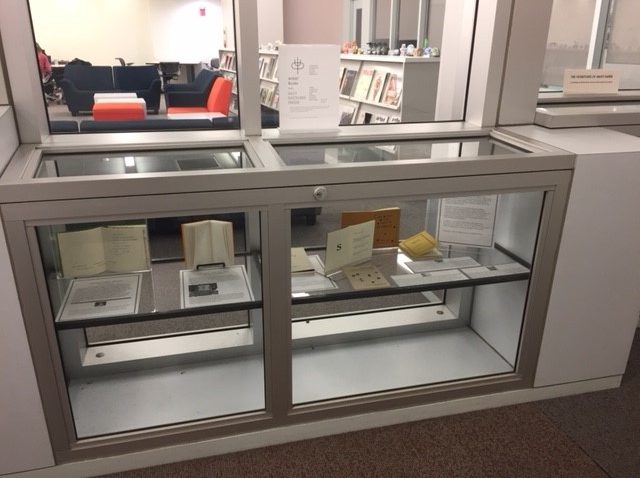
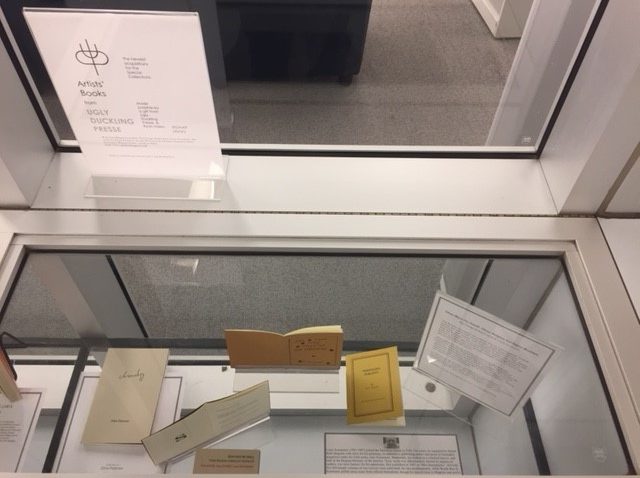
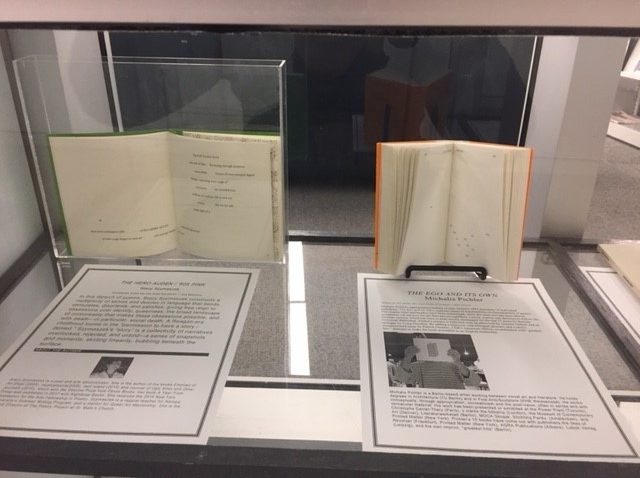
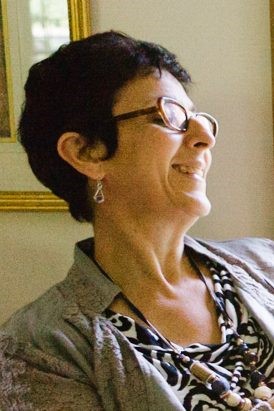 Professor Leontis’ talk from October 26 can now be viewed in its entirety:
Professor Leontis’ talk from October 26 can now be viewed in its entirety: 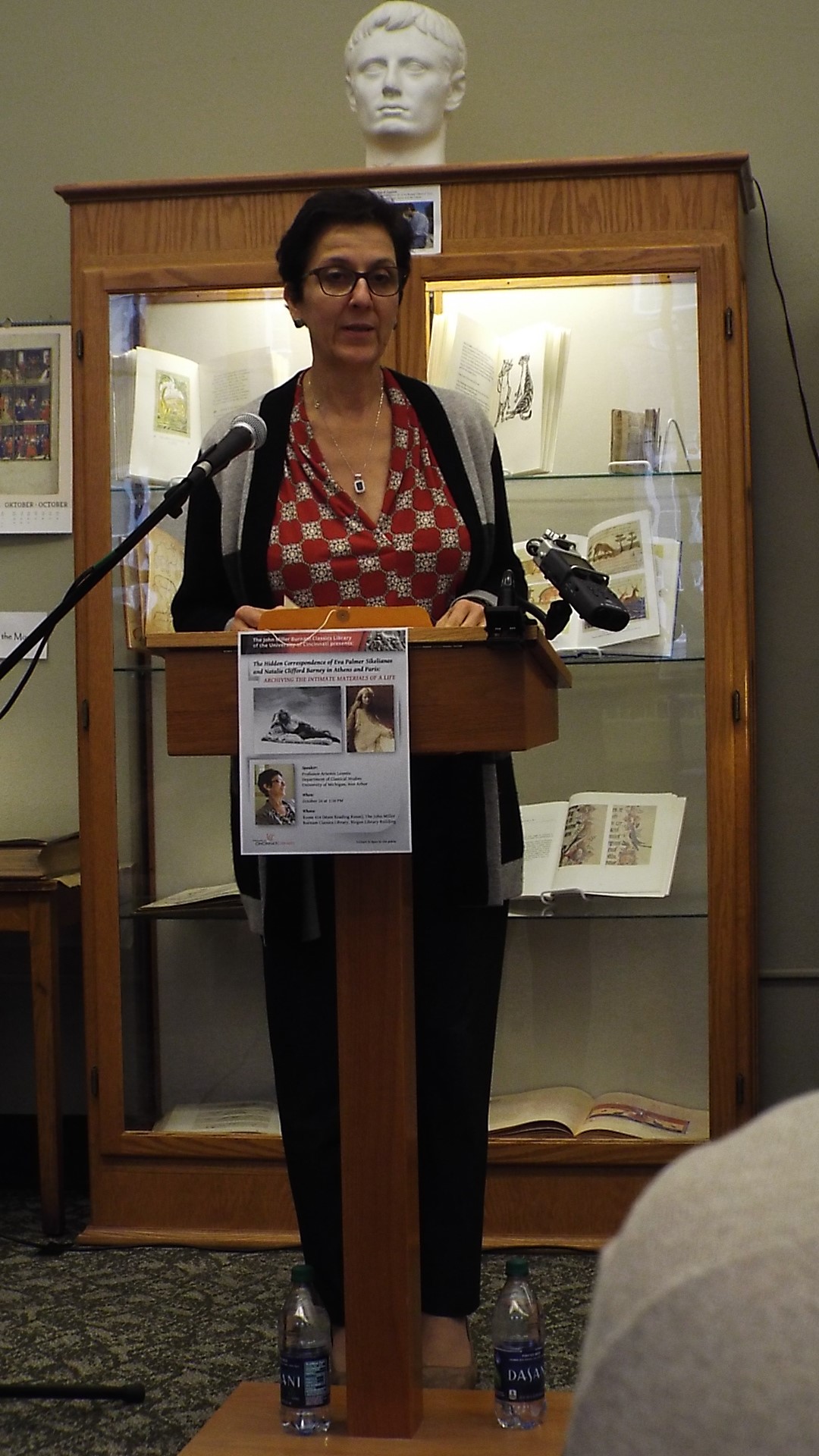
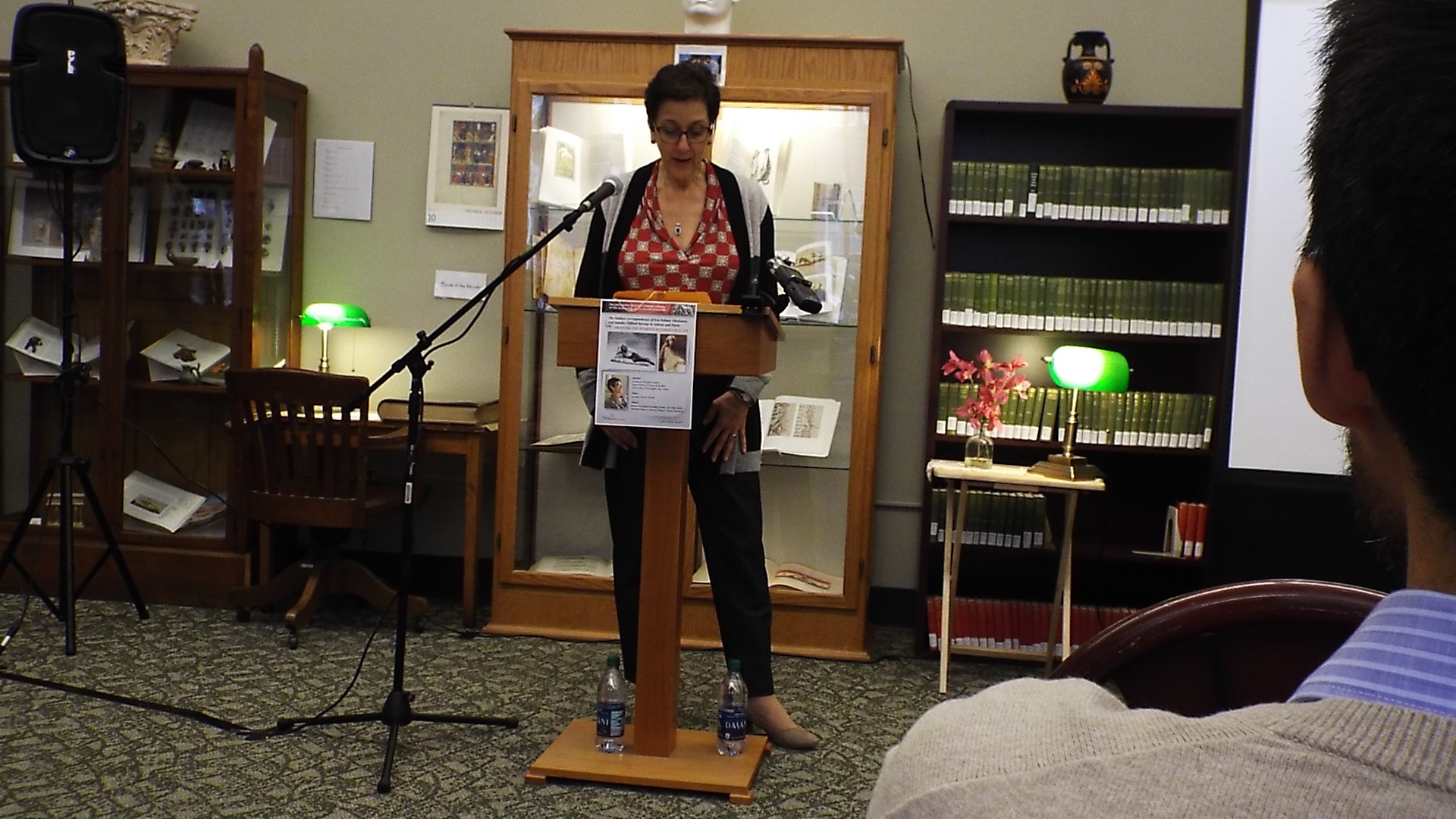
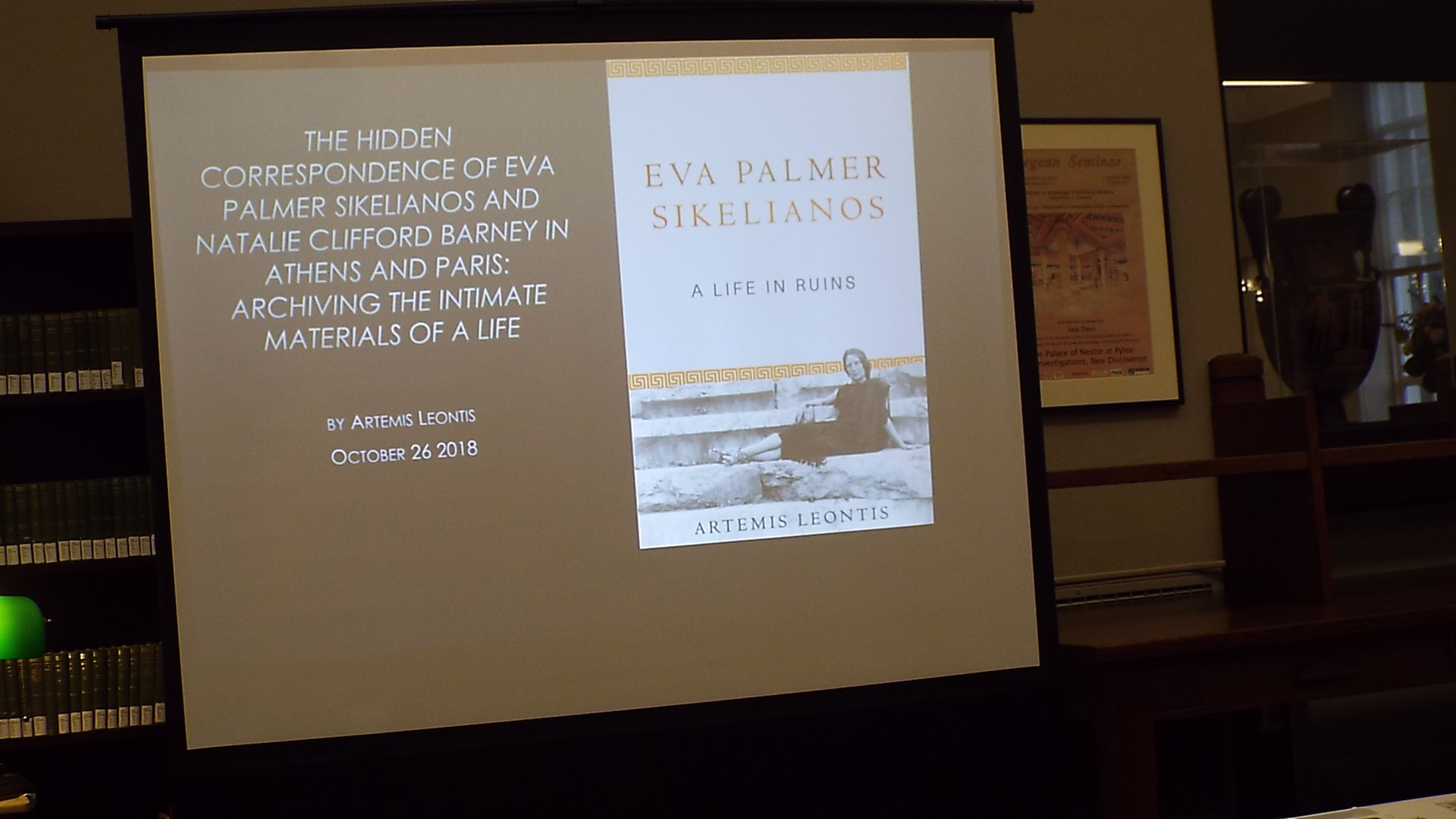
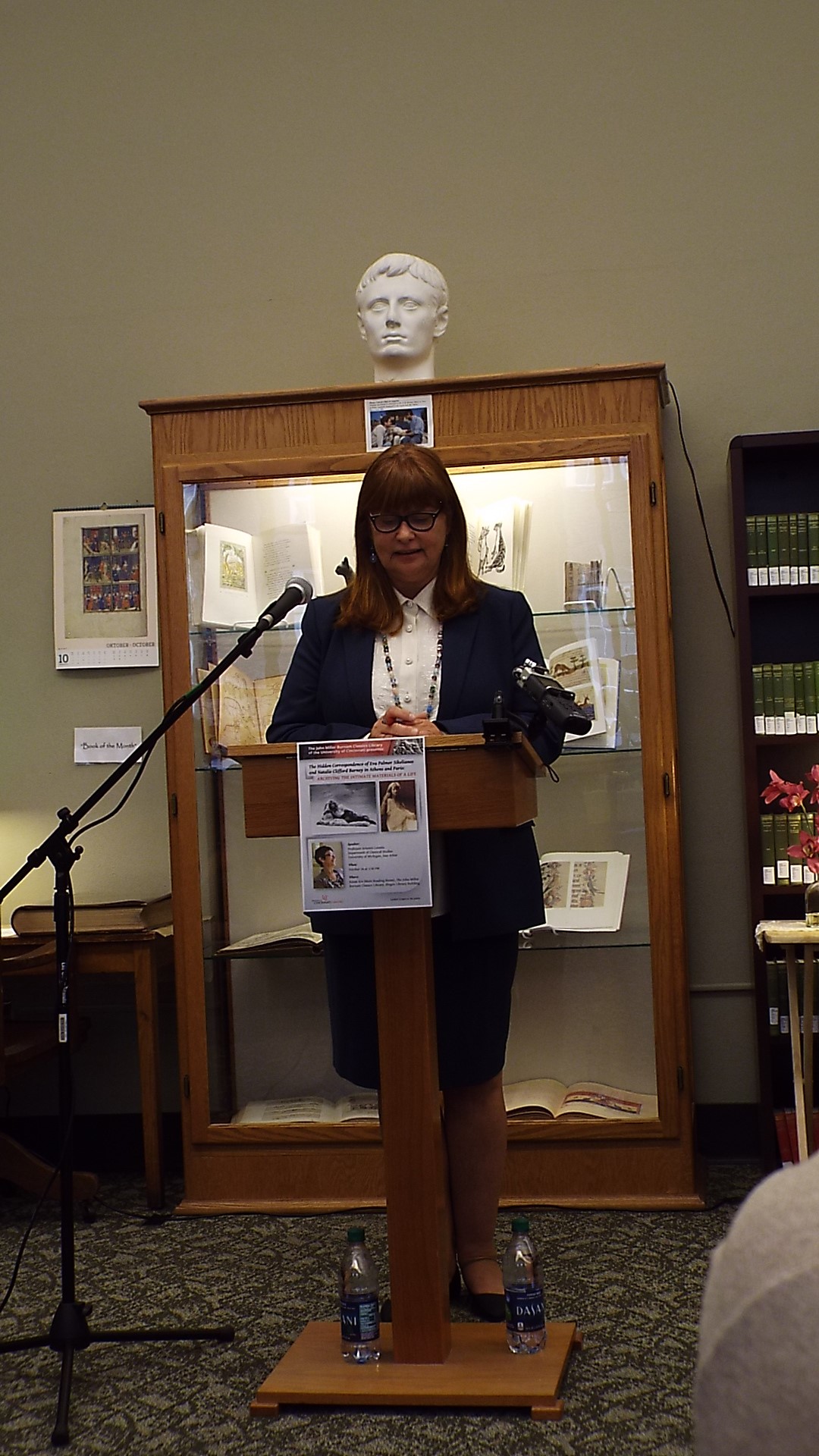
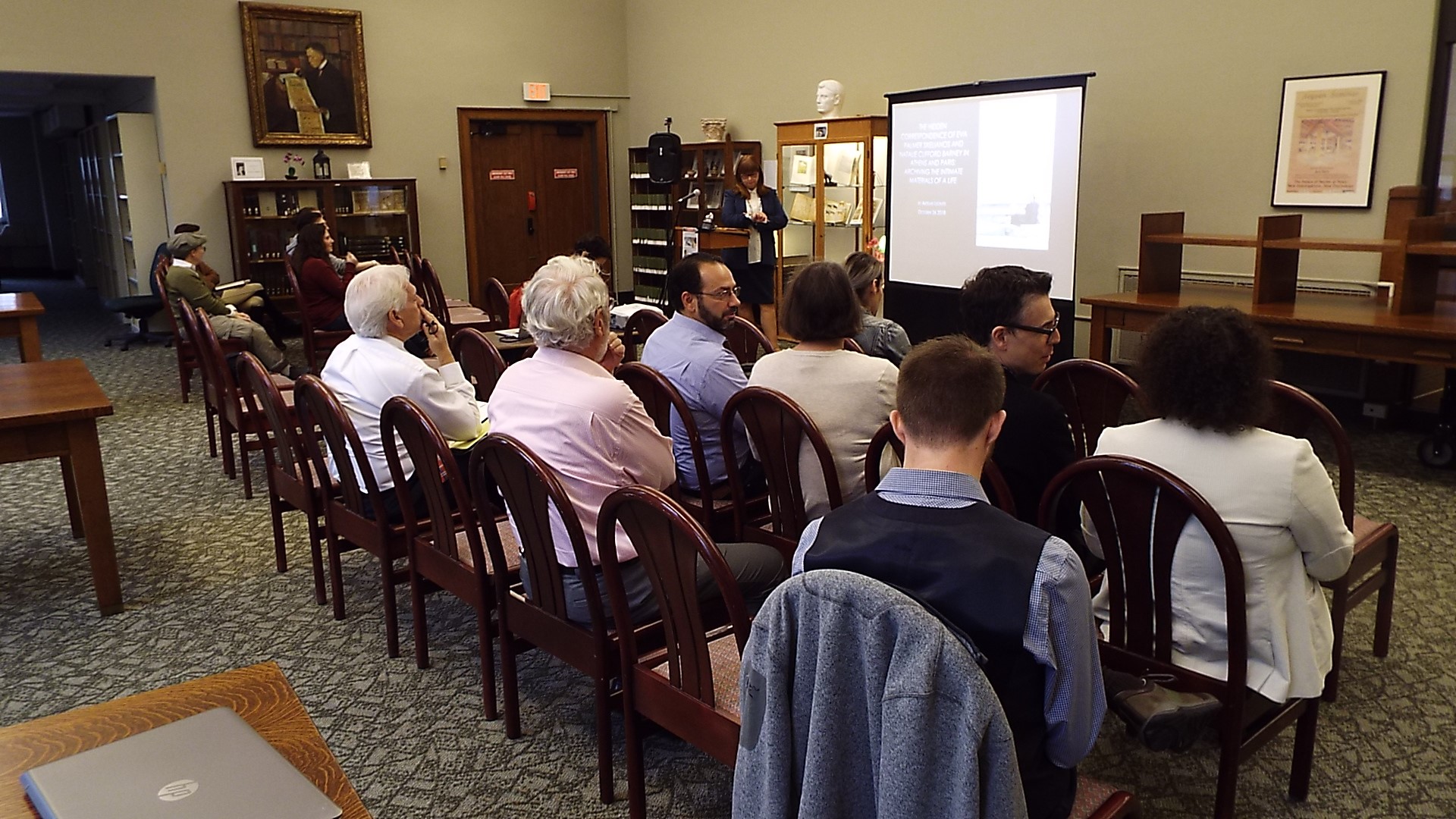
 UC Libraries will be closed Thursday, November 22 and Friday, November 23 for Thanksgiving, with the exception of the
UC Libraries will be closed Thursday, November 22 and Friday, November 23 for Thanksgiving, with the exception of the  UC Libraries will be closed Monday, November 12 in observance of Veterans’ Day, except for the Donald C. Harrison
UC Libraries will be closed Monday, November 12 in observance of Veterans’ Day, except for the Donald C. Harrison 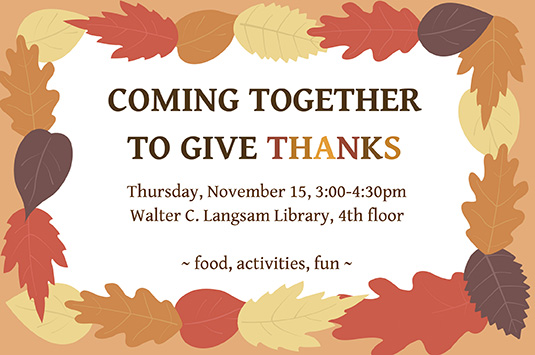
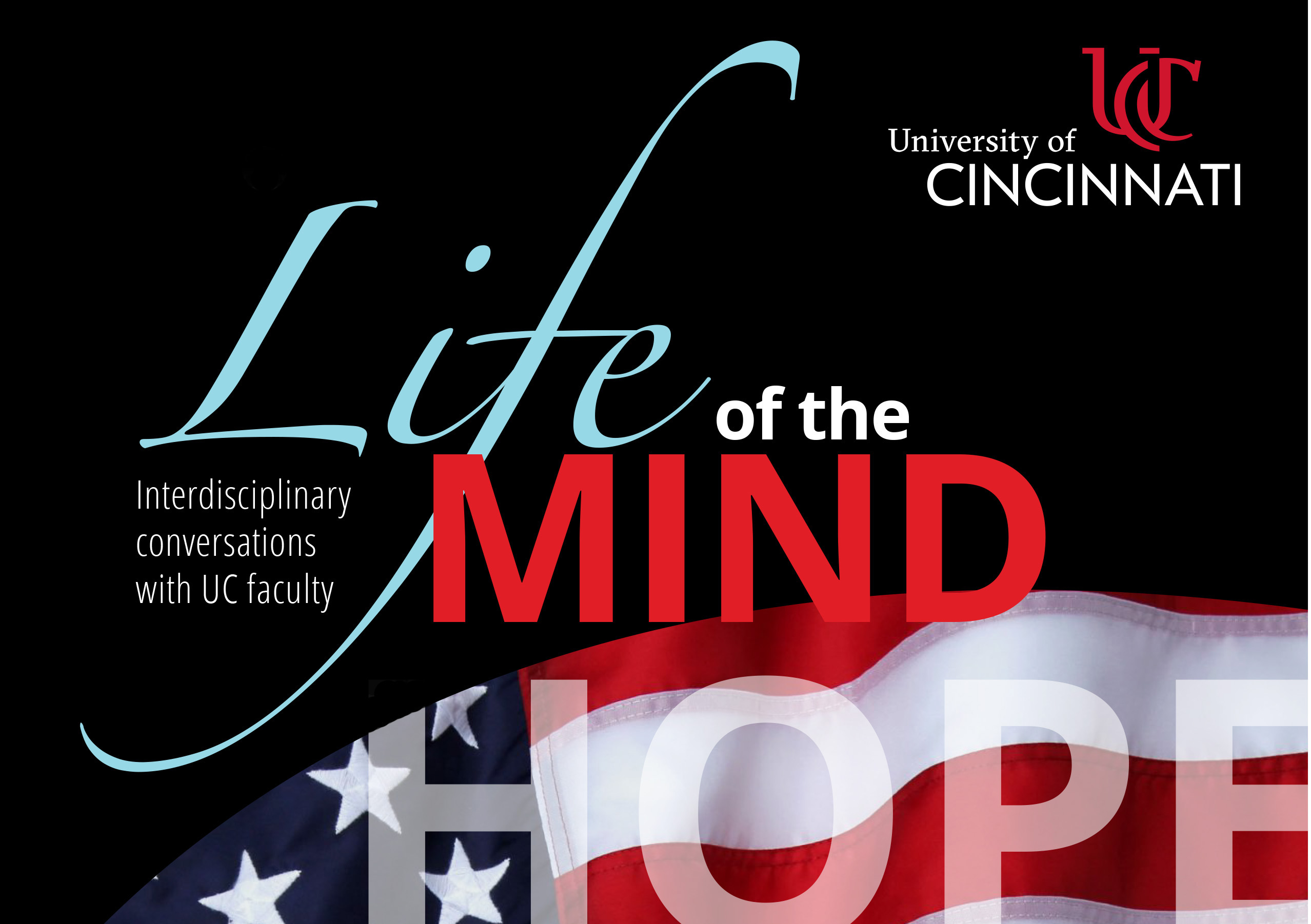 Life of the Mind, interdisciplinary conversations with UC faculty, will return 3-5 p.m., Tuesday, Oct. 30, in Annie Laws (407 Teachers/Dyer) with a lecture by Sarah Stitzlein, professor of education and affiliate faculty in philosophy. Professor Stitzlein will speak on “What’s Next for America? Teaching Hope and Reviving Democracy.”
Life of the Mind, interdisciplinary conversations with UC faculty, will return 3-5 p.m., Tuesday, Oct. 30, in Annie Laws (407 Teachers/Dyer) with a lecture by Sarah Stitzlein, professor of education and affiliate faculty in philosophy. Professor Stitzlein will speak on “What’s Next for America? Teaching Hope and Reviving Democracy.”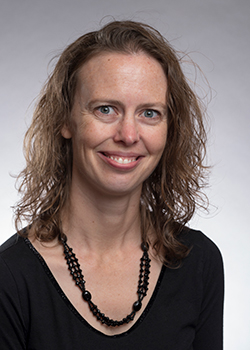 In this presentation, she will share insights from her newest book, Reviving Hope in Democracy: Teaching Hope and Overcoming Despair in America (Oxford University Press, 2019). This book was awarded a Toward an Open Monograph System grant for Open Access publishing from the UC Office of the Provost, Association of American Universities, Association of Research Libraries and the Association of American University Presses.
In this presentation, she will share insights from her newest book, Reviving Hope in Democracy: Teaching Hope and Overcoming Despair in America (Oxford University Press, 2019). This book was awarded a Toward an Open Monograph System grant for Open Access publishing from the UC Office of the Provost, Association of American Universities, Association of Research Libraries and the Association of American University Presses.